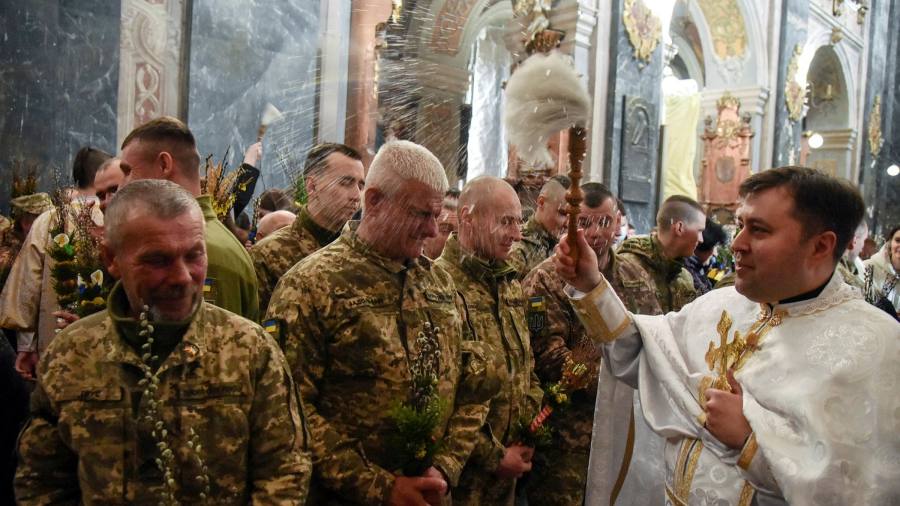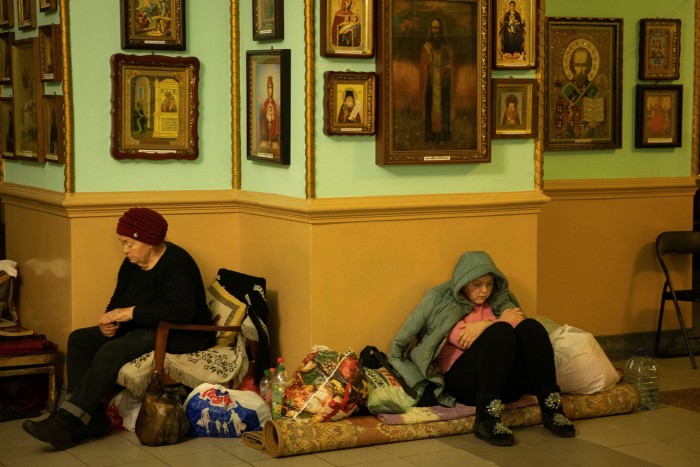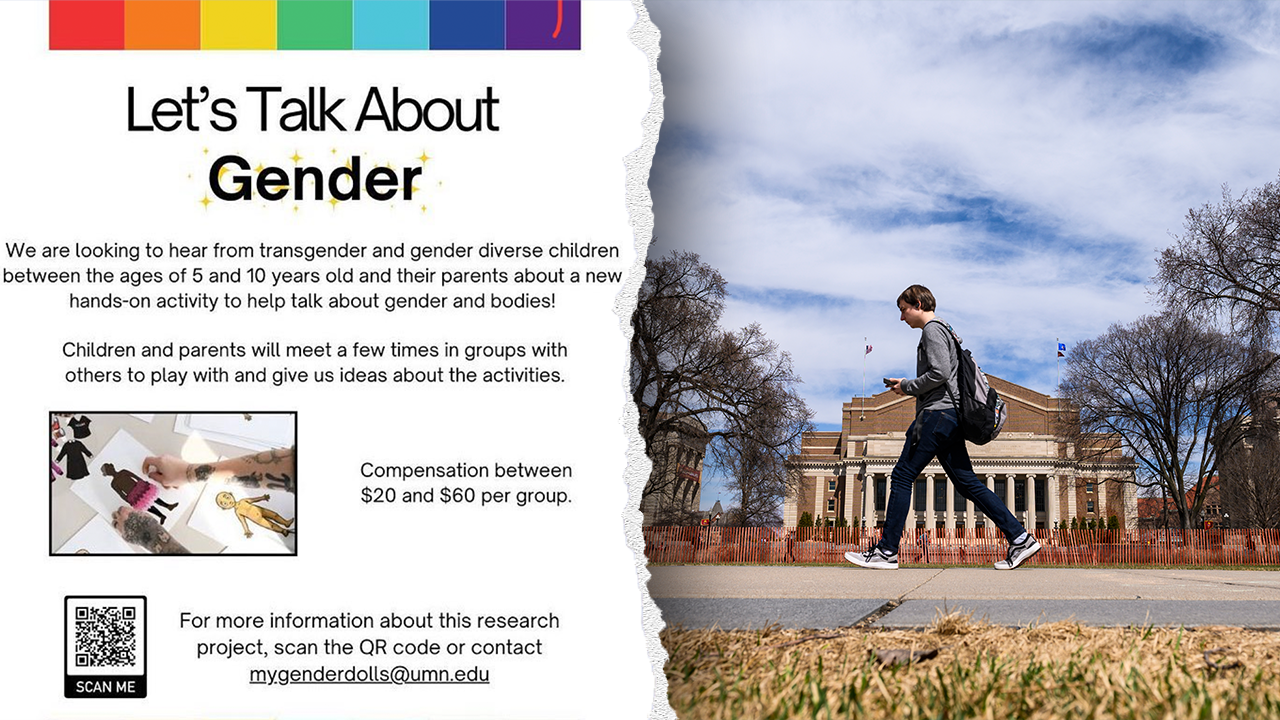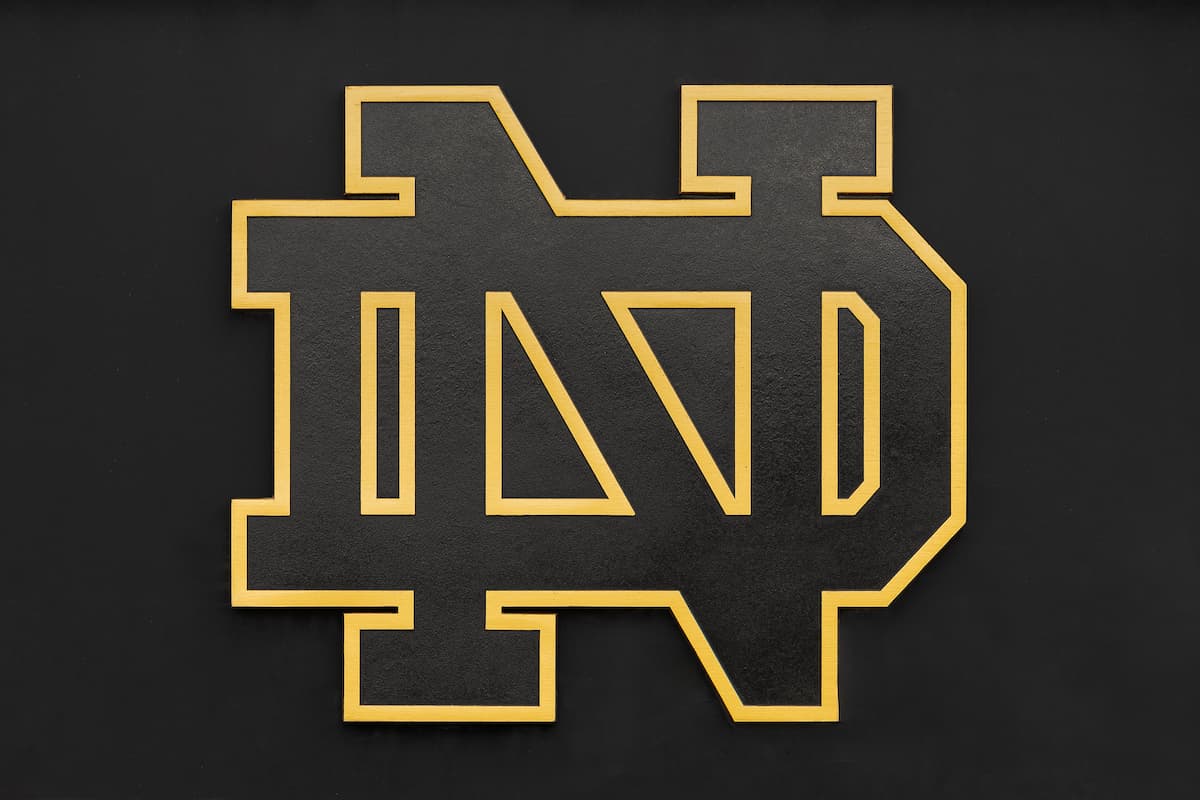The Sunday sermon that Metropolitan Longin, a senior bishop in the Ukrainian Orthodox Church, aimed at Moscow’s patriarch Kirill in early June did not hold back.
Previously Longin had prayed at every service for the blessing of Kirill — the leader of the Russian Orthodox Church, his own church’s spiritual parent.
But now Longin lambasted Kirill for “the people dying and the blood being spilled, for bombing our monasteries and churches [and] for the blessing you have given the bloodshed” in a speech condemning the Russian churchman’s support for president Vladimir Putin’s invasion of Ukraine.
“You will answer to the Lord God for every mother’s tear and freshly dug grave,” Longin said. “You have wounded the entire Ukrainian Orthodox world and brought us pain. Don’t try to justify it.”
The broadside at Kirill shows the upheaval in the Ukrainian Orthodox Church, one of the country’s largest religious organisations and — before the war — a Russian cultural bastion. Now the church’s largely Russian-speaking priests and parishioners are rejecting Russia, demonstrating how a new Ukrainian identity is taking root even among people Moscow claims are part of a “brother nation”.
Kirill’s support for the war — he has enthusiastically endorsed Putin’s campaign at a cathedral built for Russia’s armed forces — has cost Russia dominion over the Ukrainian Orthodox Church. Its 12,000 parishes amount to about a third of those under the Russian parent church’s jurisdiction.
In May, the Ukrainian church under its leader, Metropolitan Onufry, pronounced its independence from Moscow at an extraordinary council, saying this was what parishioners demanded.
“If Patriarch Kirill had said nothing, that’d be one thing. But he was saying things practically every week that were unacceptable for Ukrainian society, including churchgoing people,” said Metropolitan Kliment, the church’s spokesman. “When people came to church and heard his name, it got in the way of their prayer.”
The war has forced even Russia’s biggest supporters in the church to reconsider their allegiances. Russo-Ukrainian oligarch Vadim Novinsky, who was made a deacon by the Ukrainian Orthodox Church in 2020, spent years calling for the country to rebuild ties with Moscow even after Putin annexed Crimea in 2014.
But now he condemns Russia’s “aggression” and admits Kirill has become a liability.
“We must judge the sin, not the sinner,” Novinsky said. Nonetheless, he added, “it’s very bad that he didn’t say anything about the war and tell things the way they are . . . Everything he’s done, combined with what’s going on here, has been to our detriment.”
The pro-Russian faction in the church remains strong, according to Sergei Chapnin, senior fellow in Orthodox Christian studies at Fordham University in the US. Several bishops disputed the decision to sever ties with the Russian parent church. Donetsk, which is controlled by Moscow-backed separatists, refused to go along with it. Priests in Crimea joined Kirill’s jurisdiction.
Still, “there was no future under the Moscow patriarchate’s justification. The church would have had to cease to exist,” Chapnin said. “This was the only decision Onufry could have taken to save the church.”
Political pressure on the church had increased in Ukraine since 2014, when some priests appeared tacitly to endorse the Crimean annexation and Russia’s slow-burning war in the eastern Donbas border region.
Ukraine’s government called the church a national security risk and pushed for the establishment in 2018 of an Orthodox Church of Ukraine outside Moscow’s jurisdiction. It led to the biggest schism in the Orthodox faith in more than five centuries.
Onufry’s church remains the country’s largest, with about twice as many parishes as its newer rival. But when the war began, concern increased among Ukrainian officials that Russia could use the church as a vehicle for subversive influence.
Ukrainian security forces have repeatedly raided the Kyiv-Pechersk Lavra, a golden-domed monastery that is Russian Orthodoxy’s holiest site.
Oleksandr Tkachenko, Ukraine’s culture minister, hailed the decision to reject Kirill. “People are waiting for priests from the Ukrainian Orthodox Church to give clearer messages about the war and who is the enemy . . . It’s not a question of religion any more. It’s very political,” he said.
But hopes for a rapprochement between Onufry’s Ukrainian Orthodox Church and its newer rival remain distant, with many on both sides considering the other as heretical.
More than 400 parishes have changed allegiance to the newer Ukrainian church since the start of the war, with some switches forced through by angry parishioners. In Fastyv, a suburb of Kyiv, several priests led a mob that broke into the local church and assaulted the Moscow-backed abbot.
But the older church is reluctant to surrender control of any its holy sites, as its newer rival wants. The sites includes Ukraine’s monasteries, which are home to the most important holy relics and bolster the older church’s claims to be the true faith.
Novinsky said of the newer rival: “Where are they going to get monks from? Greece? Everyone who wanted to go over already has. They don’t have any monks or monasteries. That’s a clear sign of the inferiority of this thing they call a church.”
The new Ukrainian church is also pushing the government to be allowed to hold services in one of the Kyiv-Pechersk Lavra’s cathedrals. So far the Ukrainian Orthodox Church has refused to share.
“They don’t need the Lavra for prayer. They need it as a trophy . . . so they can lord it over everything dear and sacred to thousands of believers in the Ukrainian Orthodox Church,” Kliment said.
However Tkachenko, the culture minister and a member of the church created in 2018, has endorsed the idea in the name of national unity.
“Continuing to clash and be divided is a challenge — it’s not an option for the country,” he said. “It will probably take some efforts to convince them that this is civilised . . . but Ukrainian society has put too many expectations on the table for them not to have a dialogue.”






















Discussion about this post